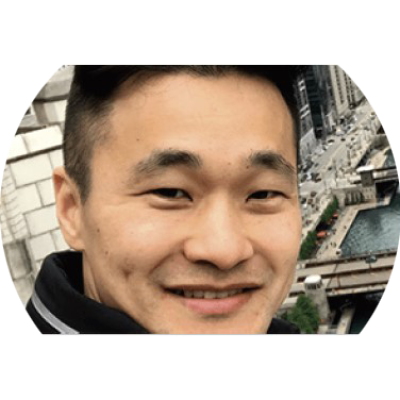
Seung-Eon Roh
Building on the observation that a protein called NPTX2 [neuronal pentraxin 2], which is related to memory consolidation, is reduced in the CSF of schizophrenia patients, I revealed that its trafficking at the synapses is impaired in schizophrenia-relevant behaviors. A separate but related discovery I made is that in vivo NPTX2 synaptic trafficking is contingent on the connectivity status of pyramidal to PV-interneuron, which gates a form of visual critical period plasticity, which is seen during development. I am doing research in Dr. Paul Worley’s lab at the department of Neuroscience.
Questions & Answers
Why did you choose Johns Hopkins for your work? I first contacted Dr. Paul Worley for a postdoc opportunity to study memory consolidation mechanism using an in vivo approach and chose JHU. But later I found that the highly collaborative environment with diverse and innovative researchers should have been another good reason. What does receiving this award mean to you personally and professionally? Do you have any connection with the particular award you received? It’s my honor to receive the award because this to me is a great recognition by the JHU School of Medicine scientific society. I have no connection related to this award. What contributed to your project’s success? (Special skills, interests, opportunities, guidance, etc.) I’ve been involved in in vivo imaging studies of the brain cognitive function for many years, even before my postdoc here at JHU, having the experience of setting up two-photon microscopy. Focusing on in vivo imaging research, I could collaborate with great colleagues who specialize in biochemistry, molecular biology and electrophysiology, and I could co-first author the papers by collaboration. The inspiring research guidance of my mentor, Dr. Paul Worley, was critical in completing research. What thoughts do you have about Young Investigators’ Day itself, as a celebration of the roles students and fellows play in research at Hopkins? I think this yearly celebration provides good opportunities to promote their research to Hopkins society. What has been your best/most memorable experience while at Hopkins? The 2020 summer retreat with members of the Worley lab — we did tubing at Gunpowder River. The water was freezing cold even during the hot summer because the water was coming out from the bottom of the reservoir, but once we got into the water, it was really fun. What are your plans over the next year or so? Graduating, looking for faculty positions, etc.? I will be seeking a faculty position to pursue my future research. At the same time, I’ll be working on some grants for my career transition. I do want to continue working on the function of NPTX2 in cognitive function. Tell me something interesting about yourself that makes you unique. Do you have any special hobbies, interests or life experiences? I like watching SF movies, running or biking along beautiful trails and playing soccer. But I am able to do none of these juggling between work and home since my lovely son, Sean, was born around two years ago and my wife goes to Peabody to study opera as a soprano. Life has been tough recently, but I’m so happy for Sean, and I want to thank Heejin, my wife, whom I love.